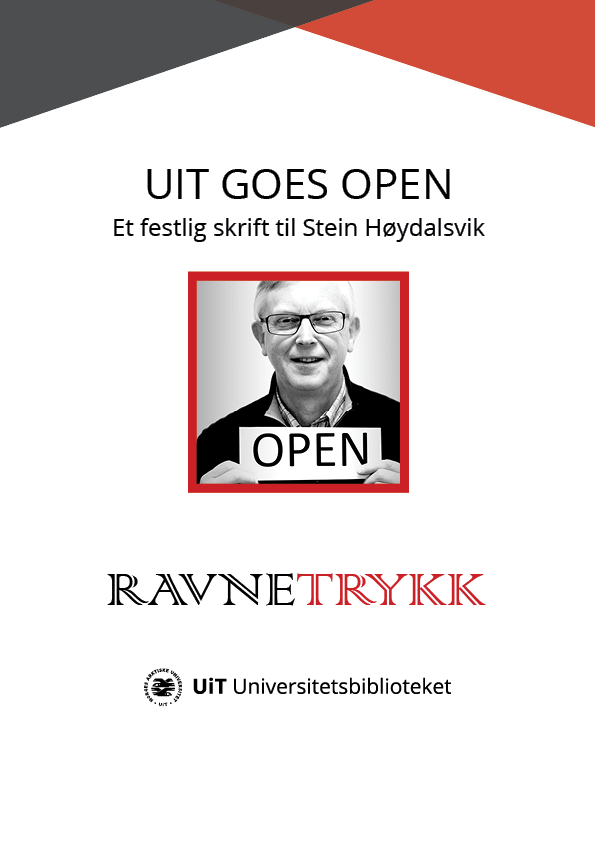The costly prestige ranking of scholarly journals
DOI:
https://doi.org/10.7557/15.5507Abstract
The prestige ranking of scholarly journals is costly to science and to society. Researchers’ payoff in terms of career progress is determined largely from where they publish their findings, and less from the content of their scholarly work. This fact creates perverted incentives for the researchers. Valuable research time is spent in trying to satisfy reviewers and editors, rather than spending their time in the most productive direction. This in turn leads to unnecessary long time from research findings are made until they become public. This costly system is upheld by the scholarly community itself. Scholars supply the journals with time, serving as reviewers and editors without any paycheck asked, even though the bulk of scientific journals are published by big commercial enterprises enjoying super profit margins. The super profit results from expensive licensing deals with the scholarly institutions. The free labour offered, on top of the payment for the licensing deals, should be viewed as part of the payment to these publishers – a payment in kind. Why not use this as a negotiating chip towards the publishers? If a publisher asks more than acceptable for a licensing deal, rather than walk away with no deal, the scholarly institutions could pull out all the free labour offered by reviewers and editors.References
Brembs, B., Button, K. & Munafò, M. (2013). Deep impact: unintended consequences of journal rank. Front. Hum. Neurosci. 24 June 2013. https://doi.org/10.3389/fnhum.2013.00291
Brembs, B. (2018). Prestigious Science Journals Struggle to Reach Even Average Reliability. Front. Hum. Neurosci. 20 February 2018. https://doi.org/10.3389/fnhum.2018.00037
Snyder, S.H. (2013). Science interminable: Blame Ben? Proc Natl Acad Sci USA 110(7):2428–2429. https://doi.org/10.1073/pnas.201300924
Stern, B.M. & O’Shea, E.K. (2019). A proposal for the future of scientific publishing in the life sciences. PLoS Biol 17(2):e3000116. https://doi.org/10.1371/journal.pbio.3000116).
Sever, R., Eisen, M. & Inglis, J. (2019). Plan U: Universal access to scientific and medical research via funder preprint mandate. PLoS Biol 17(6):e3000273. https://doi.org/10.1371/journal.pbio.3000273
Tennant, J. (2018). The State of The Art in Peer Review. SocArXiv. May 29. http://dx.doi.org/10.1093/femsle/fny204
Green, T. (2019). Is open access affordable? Why current models do not work and why we need internet-era transformation of scholarly communications. Learned Publishing, Volume 32, Issue1, p 13-25. http://doi.org//10.1002/leap.1219
Kupferschmidt, K. (2020). ‘A completely new culture of doing research.’ Coronavirus outbreak changes how scientists communicate. https://www.sciencemag.org/news/2020/02/completely-new-culture-doing-research-coronavirus-outbreak-changes-how-scientists
San Francisco Declaration on Research Assessment. https://sfdora.org/read/
European Commission, Directorate-General for Research and Innovation (2017): Evaluation of Research Careers fully acknowledging Open Science Practices. http://doi.org/10.2777/75255
Longva, L., Reierth, E., Moksness, L. and Smedsrød, B. (2017). Peer reviewing: a private affair between the individual researcher and the publishing houses, or a responsibility of the university? Journal of Electronic Publishing, Volume 20, Issue 1, 2017. http://dx.doi.org/10.3998/3336451.0020.103
Sanders, R (2019): UC faculty to Elsevier: Restart negotiations, or else. Berkeley News, August 7, 2019. https://news.berkeley.edu/2019/08/07/uc-faculty-to-elsevier-restart-negotiations-or-else/





